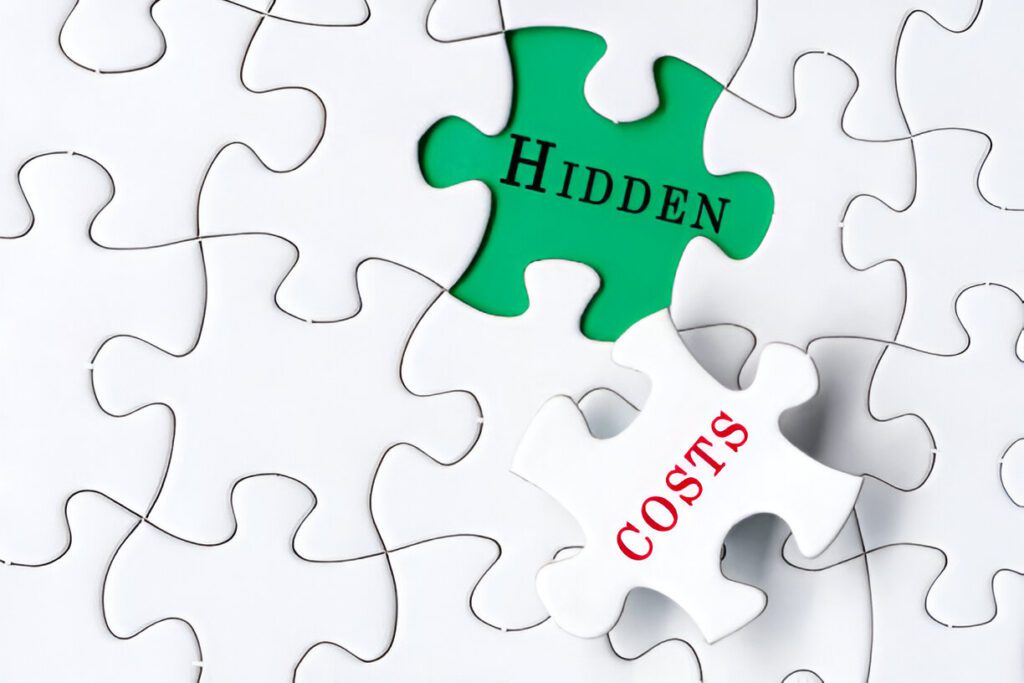How Skipping Self-Care Costs You Emotional Resilience (and 3 Simple Solutions)
Mind Keeps
- March 19, 2025
- No Comments
Table of Contents
ToggleIntroduction
Ever felt like you’re running on empty, constantly reacting to stress instead of responding calmly? You’re not alone. In today’s fast-paced world, it’s easy to prioritize work, responsibilities, and obligations while neglecting our well-being. But what happens when self-care takes a backseat? Over time, this leads to emotional exhaustion, increased stress, and a diminished ability to navigate life’s challenges. Without self-care, we unknowingly erode our emotional resilience, making it harder to bounce back from setbacks.
What is Self-Care and Emotional Resilience?
- Self-care refers to proactive habits that support physical, mental, and emotional well-being—from getting enough sleep to setting healthy boundaries.
- Emotional resilience is the ability to adapt to stress, recover from adversity, and maintain inner balance despite life’s challenges.
Why Does This Matter?
Neglecting self-care directly impacts our ability to build and maintain emotional resilience. When we skip self-care, stress piles up, leading to burnout, cognitive overload, and strained relationships. But the good news? You can rebuild your resilience with simple, science-backed strategies. This blog will explore:
Key Takeaways – Why You Should Keep Reading
✅ The Hidden Costs of Skipping Self-Care – Discover how neglecting your well-being leads to burnout, anxiety, and poor decision-making.
✅ The Science Behind Resilience – Learn how self-care rewires your brain, reduces stress hormones, and strengthens emotional stability.
✅ 3 Simple, Actionable Self-Care Solutions – Find out how small daily habits can transform your mental well-being and emotional resilience.
Ready to reclaim your energy and resilience? Let’s dive in.

The Hidden Costs of Neglecting Self-Care
When was the last time you truly took a break—without guilt, without distraction? If self-care has taken a backseat, you might be paying a higher price than you realize. Ignoring your well-being doesn’t just lead to exhaustion; it gradually erodes your emotional resilience, making daily stress feel heavier and life’s challenges harder to manage. Below, we explore the silent but serious consequences of neglecting self-care.
1. Emotional Exhaustion and Burnout
Burnout isn’t just about feeling tired; it’s a state of deep emotional and mental depletion that affects every aspect of life. According to BrainFacts.org, chronic stress exhausts brain function, impairing cognitive performance and memory. When self-care is neglected, the body remains in a prolonged “fight-or-flight” state, leading to elevated cortisol levels, which can result in fatigue, insomnia, and a sense of emotional numbness.
This exhaustion weakens our ability to manage emotions effectively. Small stressors that were once manageable suddenly feel overwhelming. Without self-care, emotional reserves become depleted, making it difficult to bounce back from setbacks, maintain motivation, or feel engaged in daily life.
2. Increased Vulnerability to Stress and Anxiety
Stress is unavoidable, but how we manage it makes all the difference. Referencing PsychCare.com, chronic stress triggers a hormonal cascade that weakens the nervous system, making it harder to regulate emotions. When we skip self-care, stress hormones like cortisol remain elevated, increasing anxiety levels and making emotional regulation a constant battle.
Without intentional self-care practices, the nervous system stays in a hyperactive state, making us more reactive to challenges rather than resilient. The result? Persistent worry, heightened irritability, and an overall sense of being on edge—further proving that self-care isn’t just a luxury; it’s a necessity for emotional balance.
3. Impaired Decision-Making and Cognitive Function
Neglecting self-care doesn’t just impact emotions—it also affects cognitive performance. As highlighted by Emma Jones, MD, in her neuroscience research, burnout directly alters brain regions responsible for decision-making, attention, and self-control. Stress hormones disrupt neurotransmitters, leading to mental fog, poor concentration, and difficulty processing emotions rationally.
Without sufficient rest, relaxation, and self-care routines, problem-solving becomes more challenging. Over time, chronic stress can even rewire the brain in ways that make it harder to recover. A scattered mind and impulsive decisions become the norm, making daily challenges feel more daunting than they actually are.
4. Diminished Relationships and Social Connection
Emotional exhaustion doesn’t just affect you—it affects your relationships too. Drawing from NeuroLaunch.com, cognitive burnout can lead to increased irritability, emotional detachment, and social withdrawal. When self-care is neglected, there’s less emotional energy available for meaningful interactions, making it harder to stay present with loved ones.
On the flip side, prioritizing self-care enhances emotional availability, patience, and the ability to connect with others authentically. It creates the mental space needed for healthy relationships, fostering deeper social support, which is crucial for long-term emotional resilience.
What’s the Next Step?
If you’re recognizing these signs in yourself, it’s time to prioritize your well-being before burnout takes a deeper toll. At MindKeeps, we help individuals like you restore emotional resilience through guided mental wellness strategies. Take the first step toward reclaiming balance by booking a free consultation with our experts today.

The Science Behind Self-Care and Emotional Resilience
Many people treat self-care as an afterthought, something to squeeze in when time allows. But science reveals that self-care isn’t just a feel-good trend—it’s a biological necessity. The way we manage stress, regulate emotions, and build resilience is deeply rooted in the nervous system, hormones, and brain plasticity. Ignoring self-care can disrupt these essential functions, while prioritizing it can transform the way we handle life’s challenges
1. The Role of the Nervous System
The autonomic nervous system controls how we respond to stress. It has two main branches:
- The sympathetic nervous system triggers the “fight-or-flight” response, releasing stress hormones like cortisol.
- The parasympathetic nervous system activates “rest and digest” mode, promoting relaxation and recovery.
According to Neurofit.app, self-care practices help shift the nervous system into parasympathetic mode, reducing chronic stress and promoting emotional balance. Without this regulation, the body remains in high alert, leading to exhaustion, anxiety, and decreased resilience.
2. The Impact on Hormones
Hormones play a crucial role in emotional regulation. Chronic stress elevates cortisol, which contributes to anxiety, mood swings, and poor sleep. On the other hand, self-care activities boost endorphins—natural mood elevators that promote well-being.
As highlighted by SelfEsteemEtc.com, self-compassion and intentional self-care can significantly lower cortisol levels while increasing endorphins. This hormonal balance enhances emotional stability, making it easier to handle stress and avoid burnout.
3. Brain Plasticity and Resilience
Neuroplasticity—the brain’s ability to adapt and rewire—proves that resilience isn’t fixed; it’s something we can build over time. Practices like meditation and mindfulness strengthen neural pathways associated with emotional regulation and stress management.
Referencing PureLifeTherapy.com, consistent self-care can rewire the brain, improving cognitive flexibility and emotional resilience. This means the more you engage in self-care, the better your brain becomes at handling stress and bouncing back from setbacks.
Reclaim Your Resilience with MindKeeps
If stress and emotional exhaustion are becoming your norm, it’s time to make a change. At MindKeeps, we offer a virtual mental wellness program designed to help you strengthen resilience through science-backed strategies. Start your journey with a free consultation and take control of your emotional well-being today.

Three Simple Solutions to Build Emotional Resilience Through Self-Care
Building emotional resilience isn’t about eliminating stress—it’s about equipping yourself to handle life’s challenges with strength and clarity. While self-care often takes a backseat, science-backed strategies can help you regain control, reduce anxiety, and enhance overall well-being. Here are three simple yet powerful solutions to integrate into your daily life.
1. Implement Daily Mindfulness and Meditation (15 minutes)
Mindfulness and meditation have been shown to rewire the brain for stress reduction, improve focus, and promote emotional balance. By practicing mindfulness, you cultivate self-awareness, allowing you to manage emotions effectively instead of reacting impulsively.
As highlighted by Vogue.com, breathwork—a key component of mindfulness—can significantly reduce mental fog, enhance clarity, and regulate stress responses. Even dedicating just 15 minutes to guided meditation or deep breathing exercises can activate your parasympathetic nervous system, lowering cortisol levels and promoting relaxation.
Want to regain control of your stress levels? MindKeeps offers a structured approach to mindfulness and emotional resilience. Book a free consultation today to explore how our virtual mental wellness program can support your journey.
2. Prioritize Restorative Sleep and Physical Activity (30 minutes)
Sleep is the foundation of emotional resilience. Poor sleep hygiene disrupts hormonal balance, heightens stress, and impairs decision-making. Establishing a consistent sleep routine, reducing screen time before bed, and practicing relaxation techniques can drastically improve sleep quality.
According to The Daily Telegraph, preventative wellness—including proper sleep and regular physical activity—is key to combating burnout and maintaining emotional stability. Engaging in just 30 minutes of movement daily, such as walking, yoga, or stretching, can boost endorphins and improve mood regulation.
Struggling to break the cycle of stress and exhaustion? A holistic approach to self-care can make a difference. MindKeeps provides expert guidance to help you integrate better sleep and movement habits into your life.
3. Cultivate Meaningful Connections and Boundaries (Ongoing)
Emotional resilience is strengthened through relationships and healthy boundaries. A strong support system can reduce stress, improve mental clarity, and boost emotional well-being. However, constantly overextending yourself leads to burnout.
As referenced by the New York Post, feeling drained after work often stems from a lack of boundaries, forcing the brain into overdrive. Learning to say no without guilt and prioritizing fulfilling social interactions can protect your energy and enhance emotional stability.
Investing in meaningful connections is essential—but so is investing in yourself. If you’re ready to set healthy boundaries and build emotional resilience, MindKeeps can help. Schedule a free consultation and take the first step toward a balanced, fulfilling life.
Reclaim Your Resilience with MindKeeps
If stress and emotional exhaustion are becoming your norm, it’s time to make a change. At MindKeeps, we offer a virtual mental wellness program designed to help you strengthen resilience through science-backed strategies. Start your journey with a free consultation and take control of your emotional well-being today.

Prioritize Self-Care and Emotional Resilience Today
Neglecting self-care weakens emotional resilience, making it harder to manage stress, regulate emotions, and maintain strong relationships. The consequences—burnout, anxiety, and mental exhaustion—can affect every aspect of life. However, small, intentional changes can have a profound impact.
By implementing mindfulness and meditation, prioritizing restorative sleep and physical activity, and cultivating meaningful connections while setting boundaries, you can build the emotional resilience needed to navigate life’s challenges with clarity and confidence.
Take the Next Step Toward a Healthier Mindset
Self-care isn’t a luxury—it’s a necessity. Now is the time to take action:
✔️ What’s your go-to self-care practice? Share your thoughts in the comments!
✔️ Found this article helpful? Share it with a friend who might need it.
✔️ Stay informed—subscribe to our newsletter for more self-care insights.
✔️ Download our free self-care checklist to start building healthier habits today.
Ready for a deeper transformation? MindKeeps offers expert guidance through our virtual mental wellness program. Book a free consultation to discover how our personalized approach can help you cultivate lasting emotional resilience. Your well-being starts now.
All Categories
This is your space for insight, inspiration, and growth. This blog is dedicated to empowering you with valuable tools and strategiesto nurture your mental well-being. Whether you’re exploring new ways to manage stress, seeking motivation to achieve your goals, or simply looking for a sense of community, you’re in the right place. Here, you’ll find expert advice, pratical tips,a snd thought-provoking articles desined to support your journey toward balance, resilience, and a healthier mindset.
Your mental wellness journey starts here—let’s grow togethe!
- All Posts
- Community Mental Health
- Family and Mental Health
- Mental Health and Personal Growth
- Mental Health Education and Awareness
- Mindfulness and Holistic Wellness
- Self-Care and Emotional Resilience
- Stress Management and Productivity
- Support for Mental Health Conditions
- Virtual Services for Mental Health
- Workplace and Mental Wellness
Benefit from our mental health consulting services and mental wellness membership program.
















